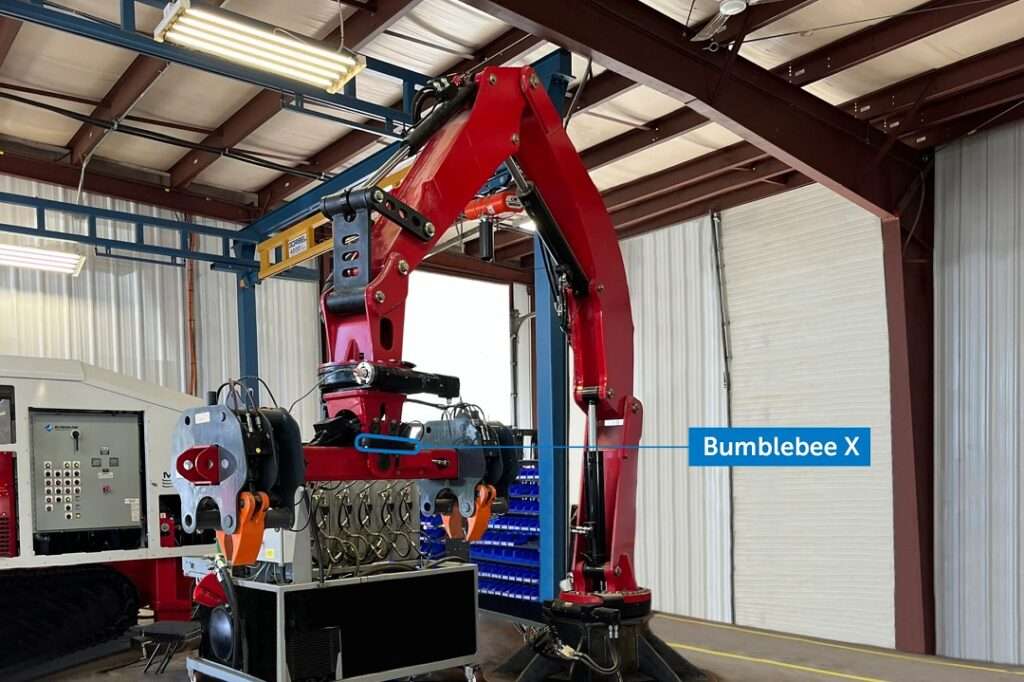The persistent problem of air pollution is on a rise with each passing year and has turned into a global threat now. According to a survey of 2020, the air pollution plaguing the nation was at an all time low last year, thanks to the lockdown owing to the COVID19. Definitely, lockdown can’t be the solution to battle air pollution but a transition to electric mobility can be. The recently announced national government’s policies are a clear signal to the intent to make India embrace electric vehicles. And to this, over 10 states have expressed willingness to replace the electric vehicle (EV) with petrol or diesel run vehicles which significantly contributes to deadly air pollution in India.
Over ten states in India have their EV policies either approved or awaiting approval. The states with approved EV policies are – Andhra Pradesh, Karnataka, Kerala, Madhya Pradesh, Maharashtra, New Delhi, Tamil Nadu, Telangana and Uttar Pradesh. The states with draft policies are – Bihar, Gujarat, Himachal Pradesh, Punjab and Uttarakhand.
In nearly all the state EV policies two and three-wheelers, public transportation, and job creation have received priority. However, the policies differ in terms of targets, supply side incentives, and demand side incentives.
Overview of the EV policies of states
1. Andhra Pradesh
EV Policies approved on August 2020
Plans to roll out 10 lakh EVs on road by 2024
Complete reimbursement of road tax and registration fees on sale of EVs till 2024
Replace public transport buses in four cities with e-buses by 2024 and all over the state by 2030
Establish 1 lakh slow and fast charging stations by 2024
Celebrate “green days” to generate awareness among public at large
2. Bihar
EV policies drafted on June 2019 and awaiting approval
Prioritizes electrification of rickshaws and plans to transform all paddle rickshaws to e-rickshaws by 2022
Offer subsidies of INR 12,000 to the end-user, and an additional special incentive of INR 10,000 will be provided for lithium-ion battery e-rickshaw
Encourages manufacturing of e-rickshaws
Establish fast-charging stations at intervals of 50-km on state and national highways, and charging stations at commercial and residential locations
3. Gujarat
EV policies drafted on September 2019 and awaiting approval
Plans to roll out 100,000 EVs on the road by 2023 which includes 70,000 two-wheelers or scooters, 15,000 three-wheelers, 14,000 cars and 1,000 buses
Convert 40 per cent of its taxi and auto-rickshaw fleet into electric by 2023
Find out locations for long-term leases to develop fast charging stations and subsidize the first 200 stations by whichever is less: 25% of charging equipment costs or 10 lakh INR ($13,600)
Funds for charging locations on state and national highways that stations within a 75-km radius
Install charging stations at multi-level parking lots and public places
4. Himachal Pradesh
EV policies drafted on September 2019 and awaiting approval
Aims to achieve 100% transition to EVs by 2030
Promotes the use of hybrid EVs by government entities during the transition
Encourages the creation of a dedicated charging infrastructure, develop a model for private players, and include a provision for charging spots in commercial buildings
5. Karnataka
EV policies approved on September 2017
Aims to attain 100% e-mobility in auto-rickshaws, cab aggregators, corporate fleets, and school buses/vans by 2030
Local public transport bus fleets will introduce 1,000 EV buses
Offering incentives such as interest-free loans on the net state goods and service tax for EV manufacturing enterprises
Focus on a venture capital fund for e-mobility start-ups, and the creation of a secondary market for batteries
Establish 112 EV charging stations in Bengaluru
6. Kerala
EV policies approved on March 2019
Plans to get 1 million EV units on the road by 2022 and 6,000 e-buses in public transport by 2025
Incentives such as state tax breaks, road-tax exemptions, toll-charge exemption, free permits for fleet drivers and free parking
Viability gap funding for e-buses and government fleets
Gives priority to EV component manufacturing
Start e-mobility demonstration hubs in a few potential areas such as tourist villages, technology hubs, and major cities’ central business districts
7. Madhya Pradesh
EV policies approved on October 2019
Rapid EV adoption and contribution to 25% of all new public transport vehicle registrations by 2026
Shared e-rickshaws and electric auto-rickshaws incentives: free cost of permits, exempt/reimbursement from road tax/vehicle registration fees for five years, 100% wavier on parking chargers at any municipal corporation run parking facility for five years
Some cities will stop registering new internal combustion engine (ICE) autos
Ensure a safe, reliable and affordable charging infrastructure, and encourage usage of renewable energy in the charging infrastructure
8. Maharashtra
EV policies approved on Febraury 2018
Increase the number of registered EVs to 500,000 over the policy period
Generate an investment of INR 25,000 crores ($3.4 million) in EV and component manufacturing and create jobs for 100,000 people
Exempts EVs from road tax and registration fees over five-year policy period
Enable fuel stations to set up charging points through governing regulations
Support for charging infrastructure by planning authorities and electricity supply agencies
Offer incentives for micro, small and medium enterprises and large manufacturing units
Modifies building/property rules to help establish a robust public charging infrastructure in the state
9. New Delhi
EV policies approved on August 2020
Seek that EVs account for 25% of the total new vehicle registrations in the city by 2024
Aims to have at least 50% e-buses for all new stage carriage buses procured for the city fleet, starting with 1,000 e-buses by 2020
A purchase incentive of INR 10,000 ($136) per kWh of battery capacity provided for electric four-wheelers (cars) (subject to a maximum incentive of INR 1.5 lakh ($2,039) per vehicle) for the first 1,000 e-cars registered in New Delhi after issuance of the policy
A purchase incentive of INR 5,000 ($68) per kWh of battery capacity provided for 2-wheelers and subject to a maximum incentive of INR 30,000 ($409) per vehicle
Provide incentive for scrapping and de-registering old highly polluting two-wheelers
Purchase incentive of INR 30,000 ($409) per vehicle to owners of e-autos, e-rickshaws, and e-carts
10. Punjab (drafted November 2019, awaiting approval)
EV policies drafted on November 2019, awaiting approval
Aim to have 25% of annual vehicle registrations as EVs in the last year of the five-year policy period
Aims to increase the share of electric 2-wheelers to reach 25% of new sales over the policy period
Replace 25% of the bus fleet of the transport department with e-buses (presently about 90% of bus fleet runs on diesel)
Aims to increase the share of e-taxis to reach 25% of new sales over the policy duration period (presently almost 80% of registered taxis are diesel based)
Private EVs will be given 100% waiver on motor vehicle tax for a period of five years, while commercial vehicles will be exempted from registration as well as permit fee for the same period
11. Tamil Nadu
EV policies approved on September 2019
Focuses on converting 5% of the buses, shared mobility fleets, institutional vehicles, and e-commerce delivery and logistics vehicles to EVs by 2030
Establish a venture capital and business incubation service to encourage EV start-ups
Providing re-skilling allowance for employees working with EV manufacturing units
EV-related and charging infrastructure manufacturing units will receive 100% exemption on electricity tax through 2025
12. Telangana
EV policies received cabinet approval on August 2020
Plans to have EV sales targets for 2025 achieve 80% 2 and 3 wheelers (motorcycles, scooters, auto-rickshaws), 70% commercial cars (ride-hailing companies, such as Ola and Uber), 40% buses, 30% private cars, 15% electrification of all vehicles
Generate job opportunities for 20,000 workers by 2025 through EVs in shared mobility, charging infrastructure development and EV manufacturing activities
Attracting investments worth $3.0 billion and support for charging infrastructure deployment
13. Uttarakhand
EV policies drafted on October 2018, awaiting approval
Focuses on achieving 100% electrification of public transport (e-buses), shared mobility including e-bike, e-taxis, and goods transport using electric 2-, 3-, and 4-wheelers, and other mini goods-transport vehicles in five priority cities by 2030
Manufacturing-focused policy and incentivize the manufacturing of lithium batteries with high mileage
14. Uttar Pradesh
EV policies approved on August 2019, awaiting approval
Aims to roll out nearly 1 lakh (one million) EVs combined across all segment of vehicles by 2024
Launch 1,000 electric buses and achieve 70% EV public transportation on identified green routes in identified ten EV cities by 2030
Eliminate all conventional commercial fleets and logistics vehicles and achieve 50% EV mobility in goods transportation in identified ten EV cities by 2024 and all cities by 2030
Establishes single-window system in place for all approvals required for EV and battery manufacturing units
Encourages new apartments, high-rise buildings and technology parks to make provision for EV charging infrastructure
Aims to be a research and development hub for EVs by focusing on the next generation of battery management systems, from production to disposal
Co-ordinate with universities and colleges to promote more research and development in e-mobility
Embracing electric mobility can prove to be a great move considering the plethora of benefits it offers. Investments in electric mobility at the national as well as state level will help India achieve its goals to generate employment, reduce air pollution, and most importantly combat climate change.








